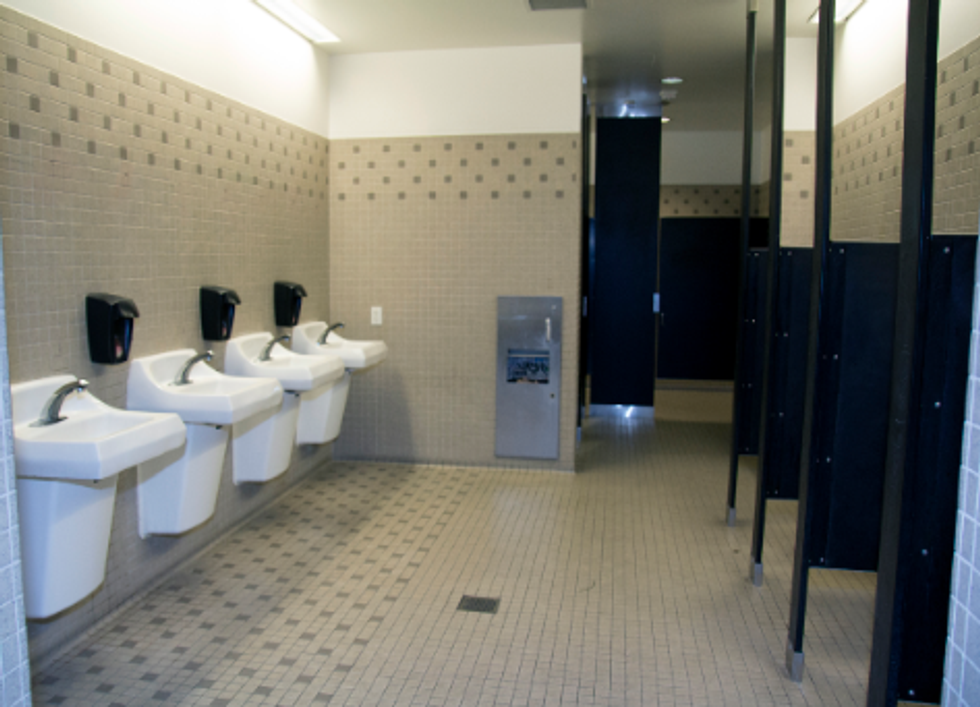In the days following Donald Trump’s inauguration, there was some speculation as to how many people showed up to the event. White House Press Secretary Sean Spicer claimed that the turnout for the inauguration was the largest in history, even though based on all reports this, in fact, was a false claim. When trying to defend Spicer on the NBC program "Meet The Press," Counselor to the President Kellyanne Conway claimed that he was simply using “alternative facts.” This lead to a larger discussion between news programs and people on social media speculating whether “alternative facts” are just falsehoods or not.
Personally (even though what was being discussed was irrelevant in my opinion) the fact that people thought this phrase was a legitimate concept was scary to me. I posted on social media that it reminded me of "1984," a dystopian novel by George Orwell about a totalitarian government. I said that when I heard the term “alternative facts," I thought about the main character, Winston Smith, and his job to destroy old documents that would contradict any new claims made by the government in the present. Much to my surprise, a couple of days later "1984" went to the top of Amazon’s bestseller list. It seems that many people are having the same thought process I’m having. (I’m not going to brag and say that I said it first, but I said it first).
The question now is, how close are we to the reality that is described in Orwell’s novel? Well, we actually aren’t that close, but we are a little closer than we should be. Big Brother isn’t in total control, as we still have some privacy (although that could be debated). We are still allowed to show emotions and affection towards each other, and the world isn’t in a perpetual state of war (not yet anyway). BUT, there are some uncanny similarities between "1984" and our reality. The idea of “alternative facts” exist, which is basically the press or the government claims one thing even though you know the opposite to be true. This is very reminiscent of "1984," as the main character Winston is fully aware of that the facts that are presented to him from the things he watches on the “telescreen” aren’t true because it contradicts his own personal accounts. The presentation of lies as “alternative facts” is a big step in totally falsifying accounts and labeling them as truths. Sean Spicer even made a statement in a later press conference stating that “sometimes you can disagree with the facts.” This statement simply makes no sense and is very dangerous, as people might start to treat facts as opinions, things that you can agree or disagree with instead of things that can’t be argued or interpreted in one way or another.
Donald Trump’s censorship of certain media also has VERY scary similarities to Orwell’s novel. The only form of news that Winston receives comes directly from the government, and if he believes anything other than what the government tells him or disagrees in any way, it’s punishable by death. While this isn’t the case presently, Trump has been attacking publications that publish damning things about him as well as refusing to answer certain reporter’s questions. He refused to answer reporters' questions at his first news conference, labeling news outlet CNN as “fake news.” This suggests that Trump wishes to control the media and attack any press that sheds negative light on him. This type of mentality is inherently fascist and reminiscent of Big Brother, the leader of the Party (in control of the government), with his insistence on what he says goes and that he shouldn’t be questioned.
Other similarities between 1984 and Trump’s presidency are winning the presidency in the first place, which is widely believed to have been rigged in his favor, using fear as an excuse to disregard human lives, and his extremely nationalist attitude. So while 2017 isn’t exactly "1984," we’re pretty damn close to it. To paraphrase a friend of mine, dystopian novels are all fun and games until you realize you’re living in one.













 Photo by
Photo by 








